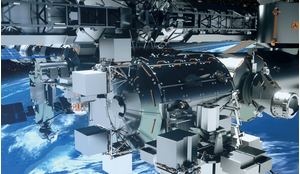Field-programmable gate array (FPGA) circuits have been used in space applications for many years, including on multiple Mars rover missions. Here, the authors describe the many advantages of FPGAs and some of their applications in the space industry.
As their name suggests, field-programmable gate array (FPGA) circuits are designed to be reprogrammable ‘in the field’, rather than having their functions ‘fixed’ once and for all at the point of manufacture.
The reconfigurable nature of FPGAs at a hardware level allows for the implementation of redundancy and radiation tolerance, which is of significant importance in space applications. It also allows for efficient hardware design, time sharing of logic depending on the current function required, future upgrades, and the ability to reset and recover from faults by scrubbing the circuit. FPGAs also have a low power consumption, making them an ideal solution for a wide range of markets from image processing to medical applications and wireless communications.














